
An autobiography, sometimes informally called an autobio, is a self-written biography of one's own life.
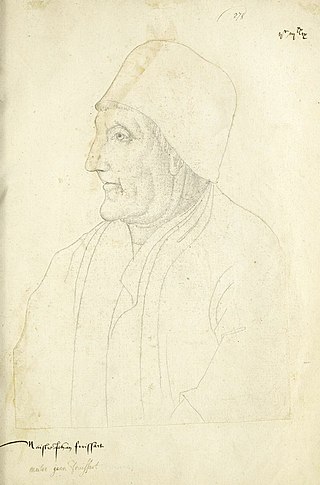
Jean Froissart was a French-speaking medieval author and court historian from the Low Countries who wrote several works, including Chronicles and Meliador, a long Arthurian romance, and a large body of poetry, both short lyrical forms as well as longer narrative poems. For centuries, Froissart's Chronicles have been recognised as the chief expression of the chivalric revival of the 14th-century kingdoms of England, France and Scotland. His history is also an important source for the first half of the Hundred Years' War.

Panait Istrati was a Romanian working class writer, who wrote in French and Romanian, nicknamed The Maxim Gorky of the Balkans. Istrati appears to be the first Romanian author explicitly depicting a homosexual character in his work.
Hervé Guibert was a French writer and photographer. The author of numerous novels and autobiographical studies, he played a considerable role in changing French public attitudes to HIV/AIDS. He was a close friend of Michel Foucault.

Virginie Despentes is a French writer, novelist, and filmmaker. She is known for her work exploring gender, sexuality, and people who live in poverty or other marginalised conditions.
An online diary or web diary, is a personal diary or journal that is published on the World Wide Web on a personal website or a diary-hosting website.
"The Way of Love" is a song written by Jacques ("Jack") Dieval, with English lyrics by Al Stillman. It was originally a 1960 French song titled "J'ai le mal de toi", and it was first recorded in English by Kathy Kirby in 1965. The best-known English version was by Cher whose recording reached No. 7 in the US. Other variations of the song include "Parlez-moi de lui" and "It's Impossible".
Michel del Castillo born in 1933 in Madrid is a French writer.
Julien Serge Doubrovsky was a French writer and 1989 Prix Médicis winner for Le Livre brisé. He is also a critical theorist, and coined the term "autofiction" in the drafts for his novel Fils (1977).
Arnaud Desjardins was a French author. He was a producer at the Office de Radiodiffusion Télévision Française from 1952 to 1974, and was one of the first high-profile practitioners of Eastern religion in France. He worked on television documentaries about spiritual traditions not well known to many Europeans at the time, including Hinduism, Tibetan Buddhism, Zen, and Sufism from Afghanistan.
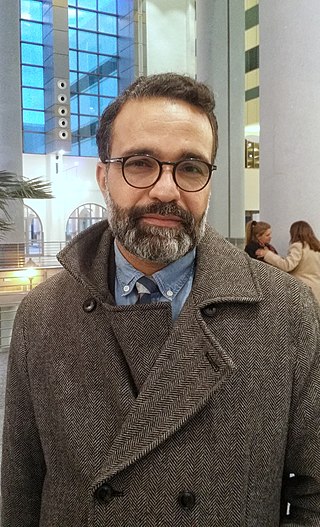
Kamel Riahi or Kamal Riahi, born 1974 in Manafikh, Tunisia), is a Tunisian writer. He teaches in Algeria. Excerpts from two of his novels have been translated into English: The Scalpel and Gorilla. Riahi has been translated into English, French, Italian and Hebrew. He was one of the 39 Arab writers under 40 years who were selected for the anthology Beirut39.
Boris Schreiber was a French writer.

Alexandre Tharaud is a French pianist. He is active on the concert stage and has released a large and diverse discography.

François Ricard was a Canadian writer and academic from Quebec. He was a professor of French literature at McGill University since 1980, including a special but not exclusive focus on the work of Milan Kundera and Gabrielle Roy, and has published numerous works of non-fiction.
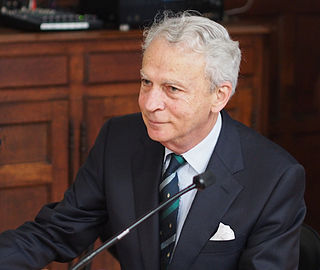
Brian Stock is an American historian. He is a historian of modes of perception between the ancient world and the sixteenth century. He was Rouse Ball Student at Trinity College, Cambridge, and Senior Fellow at the Pontifical Institute of Mediaeval Studies, Toronto, before joining the graduate faculty of the University of Toronto, where he taught history and literature until 2007. He is a Canadian and French citizen.
Philippe Vilain is a French man of letters, writer, essayist, doctor of modern literature of the University of Paris III: Sorbonne Nouvelle.
Histoire de ma vie is an autobiography by George Sand covering her life up to shortly before the Revolution of 1848. The autobiography was published in Paris in 1854 and 1855 by Victor Lecou.
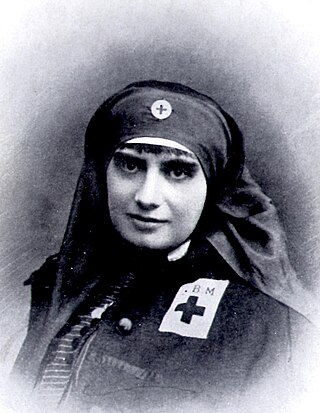
Geneviève Hennet de Goutel was a French nurse who served during the First World War.
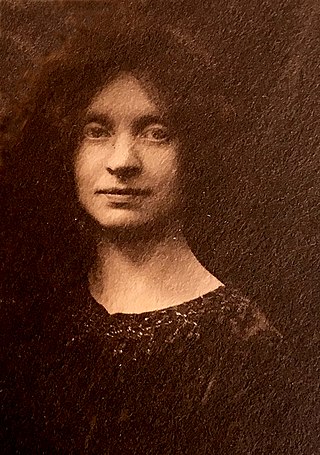
Aline Réveillaud de Lens, was a French novelist and painter who lived and worked in Tunisia and Morocco. She signed her works A. R. de Lens, A.-R. de Lens and Aline de Lens.
Piotr Klemensiewicz was a French painter and sculptor.










